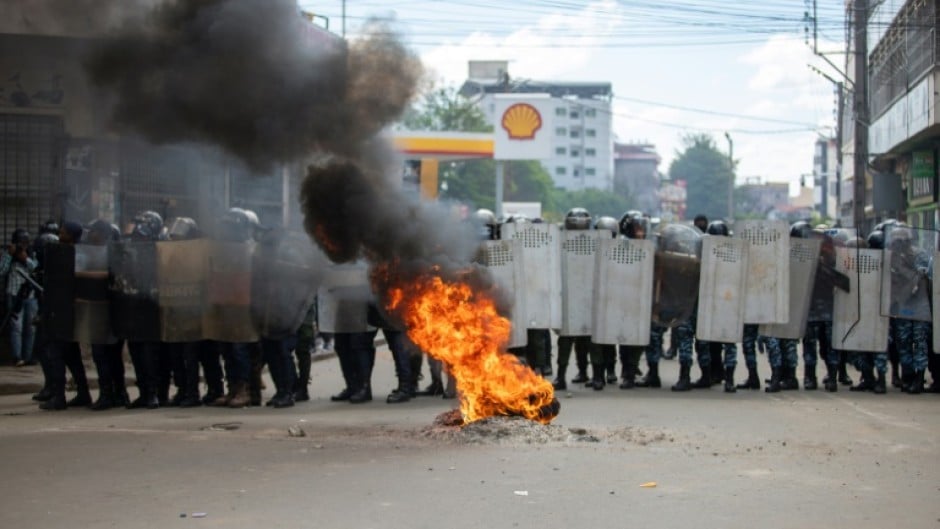Just days ahead of Madagascar’s presidential election, the streets of the capital, Antananarivo, have been gripped by protests and demonstrations. Supporters from the ‘collective of eleven,’ a coalition of opposition candidates, poured onto the city streets in their hundreds last Saturday, decrying what they believed to be an electoral process skewed in favour of current president, Andry Rajoelina.
Fueled by discontent, the protestors resorted to makeshift barricades and even set fire to tyres. Exchanges of rocks and smoke filled the city centre as riot police stepped in to quell the disorder. “I’m battling against an inept administration so that Madagascar’s law is upheld,” voiced a single resolute protestor, opting to maintain his anonymity. “Nobody stands above the law.”
The protestors expressed their determination to challenge perceived injustices, pointing out President Rajoelina as a substantial contributor to these inequities in the country. “We’re fighting for our country against the unfairness for which Rajoelina is accountable,” expressed a demonstrator, encapsulating the predominant sentiments of the protestors.
The police response was swift leading to the dispersion of the crowd. Reports indicate 11 people were arrested in the process, with approximately 10 demonstrators tending to minor injuries as confirmed by the Red Cross.
The situation in Madagascar has attracted international attention. The European Union’s senior diplomat, Josep Borrell, manifesting “deep concern” about the charged political atmosphere forming an unsettling prelude to the polls. Offering a statement on the issue, Borrell reiterated the importance of an electoral process where all candidates are afforded equal opportunity. The diplomat also highlighted the significance of upholding freedom of movement, expression, assembly, and association rights in these tumultuous times.
These events unfolding on the eve of the presidential election mark the climax of weeks of regular protests orchestrated by the opposition. Several instances of violence have punctuated these demonstrations, straining an already fraught political climate. This has raised further concerns about the legitimacy and transparency of the pending election within the international community.
Madagascar’s political landscape is in a state of flux, with rising tension and civil unrest threatening stability. It remains a critical task for the government to navigate this turmoil in an effort to hold a credible and peaceful election, one which upholds the democratic principles Madagascar subscribes to, and preserves the rights of its citizens. This contentious political period demands judicious action and calm, widespread dialogue in pursuit of reconciliation and peaceful elections.
In the face of opposition allegations and defiant protestors, it is essential for the government to give due consideration to opposition and Vox Populi’s reflections concerning the election process. Strive for transparency to ensure that the election outcome truly echoes the national sentiment, keeping in line with Madagascar’s commitment to democratic principles.
While the future remains uncertain, the importance of a peaceful, fair, and democratic conclusion to this political upheaval is more vital than ever. The international community, like the people of Madagascar, will no doubt watch the situation closely in the coming days as they await the outcome of the presidential elections.





